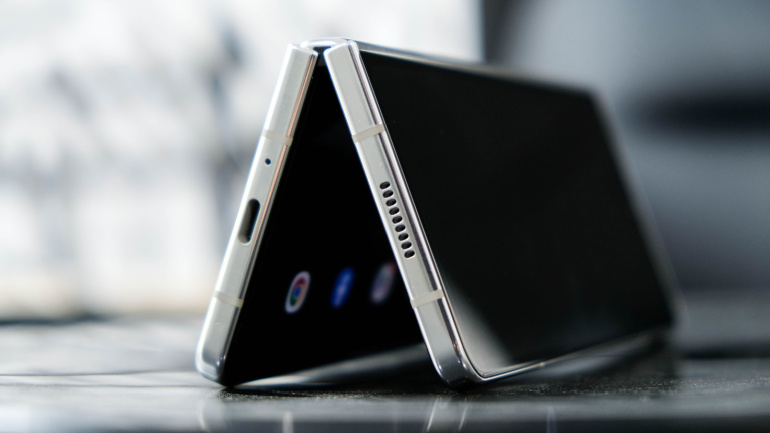In a record-breaking flurry of innovation submissions, the Connected Britain Awards are turning the spotlight on frontrunners shaping the UK’s digital frontier. The anticipation builds as the official shortlist for 2023 announces contenders across 15 award categories.
As Three UK reports a 4% revenue boost, courtesy of an expanded active customer base, its operations cost, inflated by 19%, outpaces earnings, hinting at potential sustainability issues. In a different landscape, Telecom Italia shows a 5.5% Q2 profit increase, largely on Brazil’s performance, though competitive pricing in Italy has forced a hefty debt, leading TIM to consider selling its landline grid. At the same time, BT Group sees an uptick in revenue by 4%, attributed to raised prices and improved customer satisfaction. Contrarily, US-based Qualcomm, hit by reduced consumer spending, anticipates a similar upcoming quarter, resulting in a sharp fall in share price. Meanwhile, Bharti Airtel highlights a 14.1% YoY revenue increase, fueled by its growing 4G and postpaid customer base.
If you’ve ever contemplated making the leap from your trusty flagship phone to a foldable device, Samsung’s latest offering, the Galaxy Z Fold 5, is here to entice you. While it may not be everyone’s cup of tea, the Fold 5 presents significant enhancements that set it apart as a more user-friendly, durable, and productive foldable phone compared to others in the market.
T-Mobile has taken a bold step forward in the world of 5G technology, initiating the rollout of its latest innovation that promises lightning-fast speeds of up to 3.3Gbps. The breakthrough is achieved through carrier aggregation, a technique that combines four distinct 5G channels into one for compatible devices. At present, only Samsung’s newer Galaxy S23 phones are capable of harnessing this impressive speed boost.
Huawei plans a comeback in the smartphone market with new 5G devices using domestic chip supplies. Concerns persist about the quality of these chips and Huawei’s absence from the Android Play Store. CityFibre challenges Openreach with a faster wholesale FTTH service, while Optus collaborates with SpaceX’s Starlink to expand mobile coverage in Australia’s remote areas. Ofcom investigates O2 Virgin Media over customer complaints, and the European Court of Justice rejects a ruling on the Three-O2 merger, adding to the uncertainty in the telecommunications regulatory landscape.
Startup Nothing debuts with its first smartphone Phone 1 Nothing’s first phone, the Nothing Phone 1, was finally launched this week. The Nothing Phone 1 is one of the most intriguing newcomers to the smartphone market in recent years. Carl Pei, a former OnePlus co-founder, established the startup less than two years ago. The company has showcased several of the Phone 1’s most important features in the weeks building up to the launch event, including the inclusion of a Qualcomm Snapdragon 778G Plus CPU and the Android-based Nothing OS software. Read more at: https://tinyurl.com/yc2bmksu Nokia will lead German 6G project Nokia has announced that it will lead 6G-ANNA, a German government-funded 6G lighthouse project, that began on July 1, 2022. Nokia will lead and drive 6G research and standardization in collaboration with the 29 partners, including industry members, subject matter experts, start-ups, research organizations, and universities in Germany. The project…
Vodafone signs a multi-year agreement with Oracle Vodafone and Oracle have announced an agreement to modernize their European IT infrastructure and accelerate its transition to the cloud. The companies will migrate a broad range of systems to dedicated, fully managed regions of Oracle Cloud Infrastructure (OCI) that will be deployed in Vodafone’s main data centers that are managing its European IT and network operations. According to Scott Petty, Chief Digital & IT Officer, Vodafone, the flexibility offered by OCI enables the company to build a robust cloud platform in their data centers. This advancement will also provide the operational agility and scalability required to support the growth and diversification of the Vodafone business. Read more at https://tinyurl.com/ye27dmsv Telinta taps DIDWW to deliver a white label hosted PBX solution Telinta, a global leader in white label cloud-based switching and billing solutions for VoIP service providers, has announced a collaboration with DIDWW,…
T-Mobile US has begun offering commercial Voice-over-5G (also known as Voice over New Radio, or VoNR) in certain regions of Portland, Oregon, and Salt Lake City, Utah, with the intention of expanding the service to a larger area later this year. VoNR, which is based on 5G Standalone (5G SA) network technology, is now available on the Samsung Galaxy S21 5G smartphone and will be available later this year on a variety of additional 5G handsets, including the Galaxy S22. Voice over 5G represents a significant hurdle for the whole wireless industry, however all US providers will most certainly want to transition voice calling to 5G at some point in the future to free up LTE spectrum for 5G. Voice conversations via 5G offer decreased latency, lightning-fast speeds, real-time response and immense connectivity. Ericsson, Nokia, Samsung and Qualcomm all contributed to TMUS’s voice over 5G service debut.…
Intel and Exfo release tool for 5G issue detection Operators will be able to monitor a 5G network in real time thanks to a new solution developed by Exfo, a Canadian telecommunications testing company, and Intel, a US chip manufacturer. The new service, dubbed “Exfo’s full-stack assurance solution,” is marketed as a way for 5G network operators to detect and correlate service degradation concerns.The software is said to combine system, monitoring, and telemetry data flows, monitor them in real time, and respond quickly if a fault is detected. Read more at: https://tinyurl.com/9x66wd2z Qualcomm’s €1 billion antitrust punishment lifted Qualcomm was fined €997 million by the EU in 2018, in what was considered as a major victory for regulators over ‘big tech.’ The General Court, Europe’s second-highest court, has now overruled this order. The complaint concerns Qualcomm’s payments to Apple running into the billions of dollars between 2011 and 2016 to…
The Federal Communications Commission (FCC) has named Kaspersky Lab, a Moscow-based cybersecurity business and developer of popular antivirus software, as one of the organizations posing an unacceptable danger to US national security. Kaspersky is the first Russian company to be added to the list, which is currently dominated by Chinese telecoms companies. The FCC has now released its most recent list of untrustworthy vendors, which includes, for the first time, a non-Chinese company: Kaspersky. Kaspersky joins Huawei Technologies, ZTE Corporation, Hytera, Hangzhou Hikvision Digital Technology Company, Dahua Technology Company, China Telecom (Americas) and China Mobile International USA on the list. Once a company has been included on the list, it is illegal for that organization to use federal subsidies, which are distributed through the FCC’s $8 billion yearly Universal Service Fund, or to buy any of its products or services. Domestic consumers, with the exception of government employees,…













